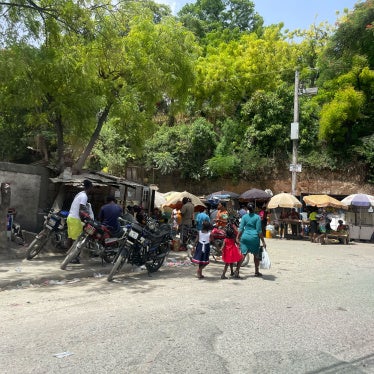Refugee advocates had a rare win when a social media campaign and huge media spotlight convinced Thailand not to return a young Saudi woman, Rahaf Mohammed Al-Qanun, to her allegedly abusive family. The United Nations refugee agency, UNHCR, was able to intervene and recognize her as a refugee and Canada agreed to resettle her. She arrived in Toronto on Saturday.
I can’t help but wonder, though, what might have happened had she sought refuge at the US-Mexico border instead of the Bangkok airport. Do Americans sympathetic to her plight see any connection with the women fleeing abusive spouses and parents in Central America?
Last June, then-Attorney General Jeff Sessions reviewed for himself a case before the Board of Immigration Appeals and reversed its grant of asylum to a Salvadoran woman who had survived nearly 15 years of horrific abuse by her husband, including numerous rapes and beatings. To reject her claim, he overruled the appeals board precedent that had recognized “married women in Guatemala who are unable to leave their relationship” as members of a social group that could qualify for asylum. “Generally,” his decision said, “claims by aliens pertaining to domestic violence or gang violence perpetrated by non-governmental actors will not qualify for asylum.”
It is true that the situation for women and girls in Saudi Arabia is unique in many respects, including its guardianship system, which requires women to have a male guardian to approve critical decisions in their lives such as traveling outside the country or getting married. But it is sadly not uncommon for women and girls in many other places to be trapped in abusive relationships even without such regulations.
A 2015 UNHCR report, “Women on the Run,” collected Central American women’s accounts of being trapped in marriages with prolonged and severe domestic violence, for which authorities provided no meaningful help. Some of the women’s abusive partners had additional power leverage because they had ties to the police. The report said that 10 percent of the women interviewed stated that the police or other authorities were the direct source of their harm.
Other women were trapped by their partner’s gang connections: “My husband was connected with the maras,” a Salvadoran woman said of El Salvador’s street gangs. “When he abused me, I knew there was nowhere I could go.” Another Salvadoran woman told UNHCR of “standing in front of the police, bleeding, and the police said, ‘Well, he’s your husband.’”
Three important elements are needed to establish a refugee claim based on domestic violence:
- The threat of serious harm;
- That the harm is on account of being part of a particular social group that refugee law protects; and,
- That the state is unable or unwilling to protect its own citizen.
The 1951 Refugee Convention, on which US asylum law is based, protects refugees fearing persecution based on race, religion, nationality, membership of a particular social group, or political opinion. US courts have interpreted a particular social group, like the other four categories, as one with “immutable characteristics” that either cannot be changed, like race, or are so fundamental to a person that they should not be compelled to change, like political opinion.
Gender fits the bill; so does sexual orientation, having a disability, or being a member of a family. But Acting Attorney General Matthew Whitaker recently has taken another case out of the hands of the appeals board that will consider whether and under what circumstances a person can claim asylum as a member of a family unit. It appears the Trump administration’s Justice Department is intent on challenging the concept of a particular social group as a ground for asylum in even the most immutable cases.
The existence of other broad convention grounds such as race and nationality notwithstanding, courts have shied away from accepting “women and girls” per se as a protected social group, preferring instead narrow categories. For example, the landmark Fauziya Kasinga case, which granted asylum to a woman fleeing genital mutilation, defined her group as “young women who are members of the Tchamba-Kunsuntu Tribe of northern Togo who have not been subjected to female genital mutilation, as practiced by that tribe, and who oppose the practice.”
Of course, being a woman per se is not a ground for asylum any more than being a member of a race, nationality or a religion, but gender should be recognized comparably as a category deserving protection if it is the basis for being persecuted.
So, let’s celebrate Rahaf Mohammed Al-Qanun’s refugee status, as we celebrated Fauziya Kasinga’s. But let’s not forget the Central American women seeking asylum along the US southern border whose lives still hang in the balance, and let’s campaign for the US government to recognize the legitimacy of their asylum claims.









